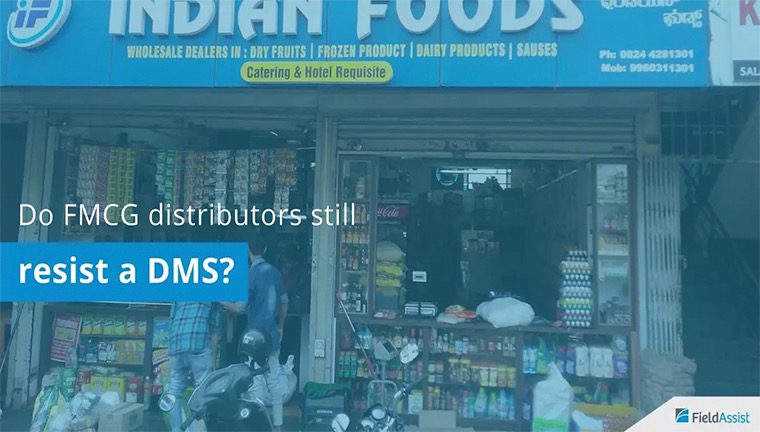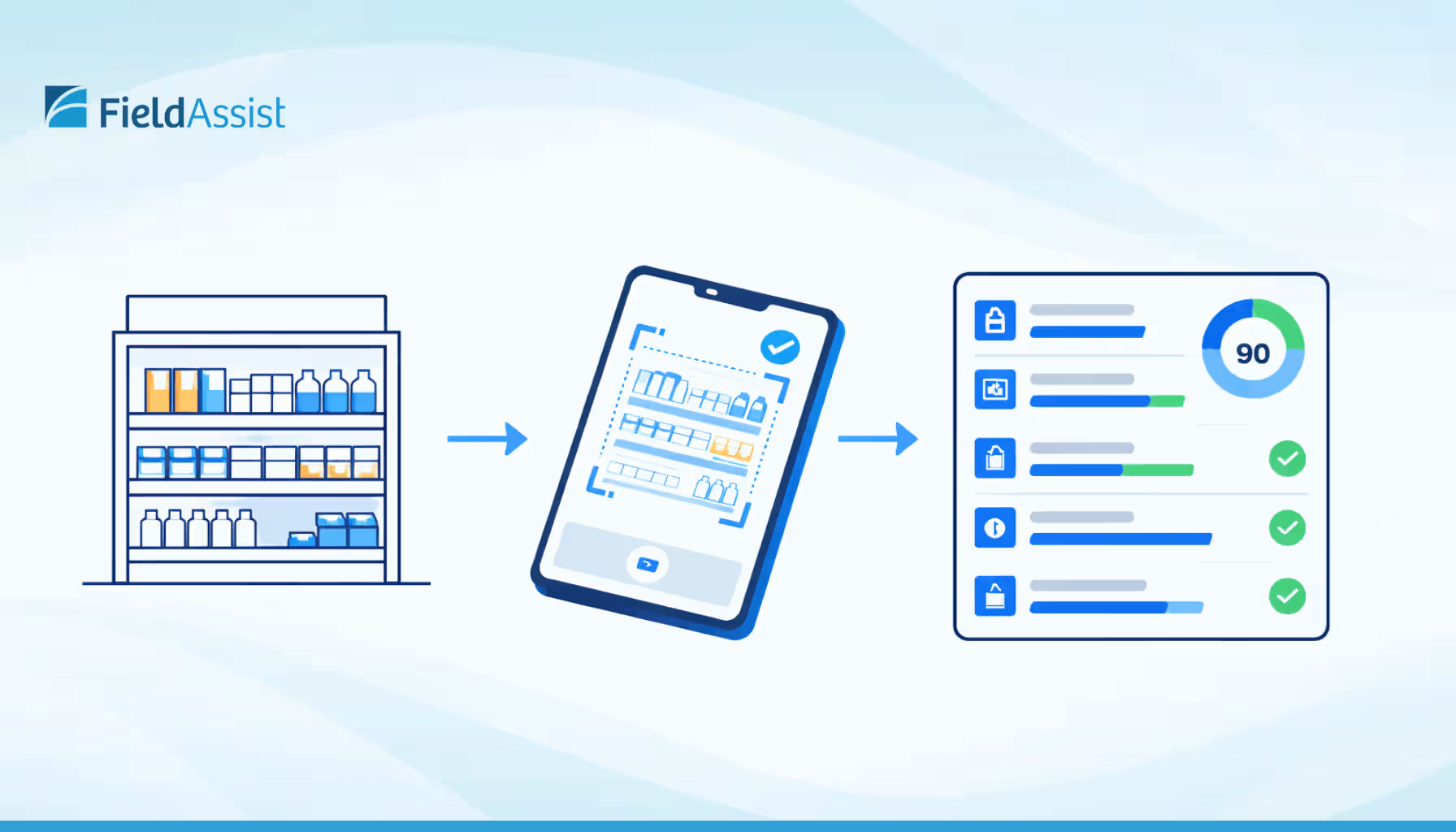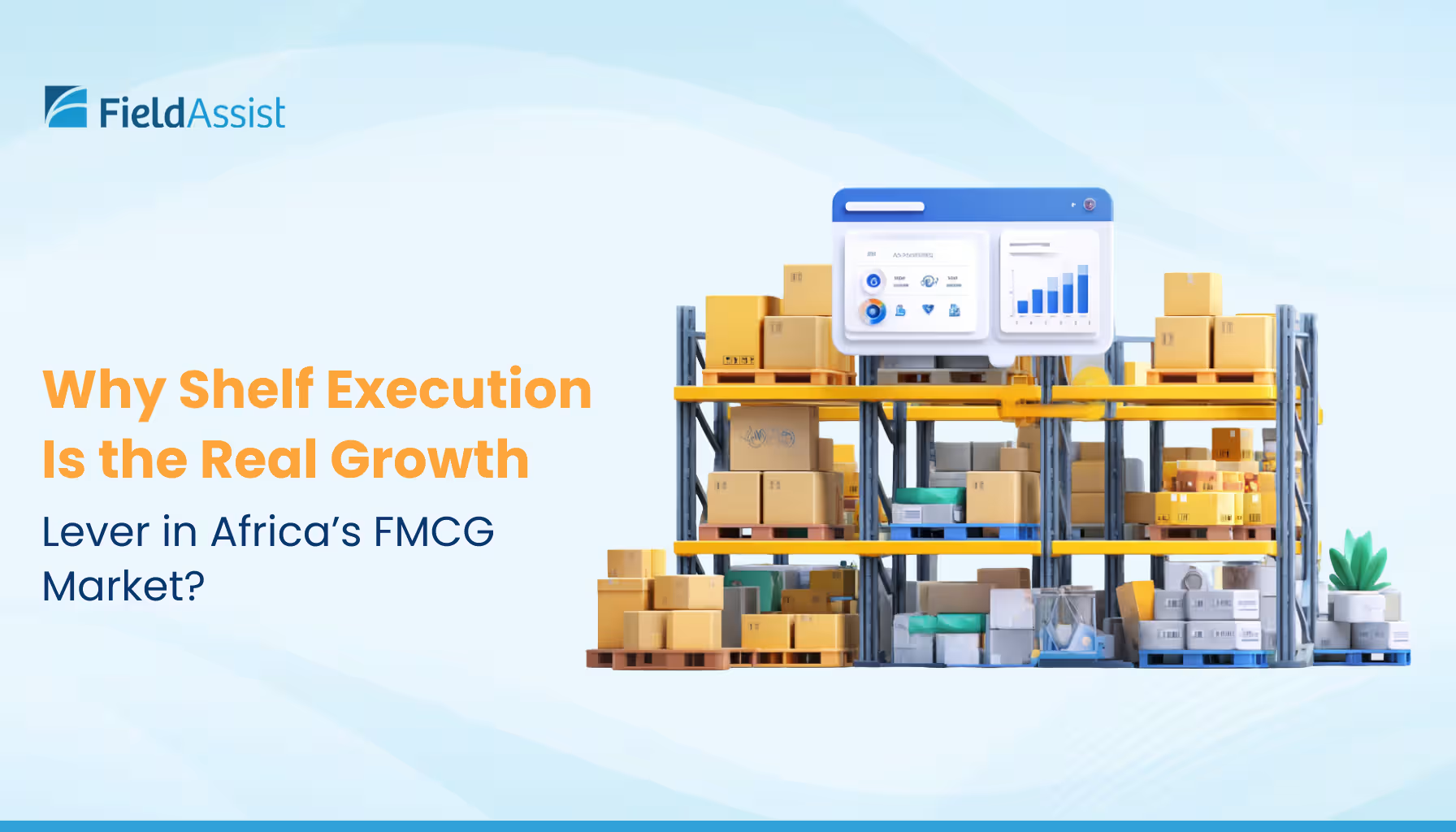Do Distributors Still Resist a Distribution Management System?
Understand the genuine reasons why FMCG distributors resist a distribution management system FMCG. Trade margin is not always the reason.

India’s FMCG market isn’t just about unicorns and billion-dollar exits. Beneath the headlines lies a vibrant ecosystem of regional and mid-sized consumer brands, makers of snacks, juices, personal care, and home essentials, quietly building multi-crore businesses across the country’s heartland.
This story is fascinating. And this became one of the topics of my discussion when I recently spoke to the Head of Sales at one of India’s leading FMCG companies. We, also discussed sales force automation, of course. But the topic that got all the attention was the distribution management system. It was natural for us to complain about the distributor community, but soon professionals in us took over.
Not every problem in the FMCG distribution sales is because of the distributor. There are other issues surrounding the digital readiness of manufacturers and many operational ones. What followed was a balanced conversation that concluded today’s FMCG distributors are slowly and steadily adopting the Distributor & Consumer Management System.
Here is what the conversation covered.
Why Trade Historically Resisted DMS
- Trust Over Technology:
For decades, India’s FMCG trade ran on personal relationships, credit cycles, and verbal agreements. Distributors and retailers relied on goodwill and mutual understanding rather than formal systems or data tracking. - Manual Systems That Worked — Until They Didn’t:
In the early years, manual billing, paper ledgers, and phone-based order taking were sufficient. But as brands scaled across regions and SKUs expanded, the lack of structured data began to create inefficiencies. - Accountability and Transparency Challenges:
The introduction of a Distribution Management System (DMS) brought visibility into sales, stock, and promotions. For many distributors, this transparency felt intrusive — it exposed inefficiencies and practices they had long considered normal. - Loss of Control and Autonomy:
Distributors feared losing flexibility in managing pricing, schemes, or stock flows. A DMS appeared to shift control from local business owners to corporate dashboards, creating apprehension about being constantly monitored. - Unilever’s “Economic Crimes” Insight:
A well-known Unilever whitepaper titled “Economic Crimes in the FMCG Industry” highlighted manipulation practices such as inflated end-of-period sales, diverted trade promotions, and unrecorded returns. A digital system made these visible, leading to greater resistance from those comfortable with existing practices. - Cultural, Not Just Technological, Resistance:
For most distributors, the shift wasn’t about software adoption; it was about changing how business was done. Moving from experience-led decision-making to data-led accountability required a complete mindset change.
The Psychology of Resistance: Why Change Feels Risky
1️) It’s Not About Technology, It’s About People
Resistance to digital transformation isn’t born out of dislike for technology; it’s rooted in emotion. Many FMCG distributors have spent years perfecting their manual processes — from order taking to stock movement- and take pride in systems that rely on intuition and personal trust. For them, switching to a distribution management system can feel like surrendering control to a machine.
2️) The Comfort of Familiar Routines
Distributors operate in a business built on long-standing habits. Ledger books, phone calls, and relationship-based decision-making have been part of India’s FMCG distribution channel for decades. Change disrupts that comfort. Adopting digital systems challenges the belief that “if it isn’t broken, why fix it?” especially when operations have worked fine without automation.
3️) Fear of Monitoring and Transparency
Many distributors associate new systems with surveillance. The thought of their daily activities, inventory movements, or sales figures being visible to the manufacturer feels uncomfortable. Without the right guidance, even a modern distributor management system for FMCG can be mistaken for a compliance tool rather than a performance enabler.
4️) Lack of Confidence in Using Technology
Not every distributor is tech-savvy. For smaller partners, adopting new platforms or online portals can feel intimidating. They fear making mistakes or slowing down operations during the transition. This psychological hesitation often outweighs any technical challenge.
5️) Changing the Narrative Through Empathy
To overcome resistance, manufacturers need to focus on education and empathy. The goal is to communicate that tools like a FieldAssist DMS or other distributor management software don’t replace experience; they amplify it. With the right onboarding and support, distributors begin to see value in automation as a growth partner, not an audit system.
6️) Technology That Enables, Not Enforces
Modern solutions like distribution management system software are designed for ease of use, not control. They help automate order booking, stock visibility, and claims management, freeing up time for more strategic selling. Distributors who once hesitated discover that these platforms actually simplify their daily work.
7️) From Resistance to Readiness
As digital adoption grows, distributors are realizing that the right software for distributors isn’t about surveillance; it’s about empowerment. Platforms such as FieldAssist DMS, one of the most intuitive and user-friendly systems in the industry, are proving that automation can coexist with human judgment.
Over time, resistance fades. What was once viewed as a burden becomes a competitive edge, enabling smarter forecasting, faster claims processing, and better retailer relationships. The shift from manual operations to intelligent distribution software is no longer optional; it’s inevitable.
The Turning Point: From Resistance to Realization
For years, many distributors saw digital systems as complicated and intrusive. But that perception is changing fast. The pandemic, competitive pressures, and the growing need for transparency have shown that manual processes can no longer sustain modern FMCG operations.
Today’s distributors are realizing that a Distribution Management System (DMS) isn’t just about compliance; it’s about control, accuracy, and growth. Cloud-based tools like FieldAssist DMS have made adoption easier with mobile access, real-time updates, and seamless integrations.
With modern distribution management software, distributors can now track sales, manage inventory, and process claims with speed and confidence. What once felt like surveillance has turned into empowerment, giving businesses the insights they need to plan better and sell smarter.
This is the real transformation, resistance replaced by realization. The right technology is no longer an obligation; it’s a strategic advantage driving profitability, visibility, and long-term trust across the FMCG distribution channel.
The Road Ahead: AI and Predictive Distribution
The next phase of digital transformation in FMCG distribution will be defined by intelligence, not just automation. As markets grow more competitive, decision-making is shifting from hindsight to foresight, powered by predictive analytics and machine learning.
AI-driven tools are now helping sales and supply teams forecast demand, detect early signs of stockouts, and recommend the best product mix for every outlet. These insights enable companies to stay ahead of demand fluctuations, reduce wastage, and improve service levels across territories.
What was once manual and reactive is becoming proactive and self-optimizing. Smart algorithms can now analyze past orders, local trends, and even weather or festival data to suggest when and where to push specific SKUs. The result? Faster sell-through, better availability, and higher retailer satisfaction.
Platforms built on this new wave of intelligence are enabling data-led precision, guiding teams on where to focus efforts, which markets to prioritize, and how to maximize every visit’s impact.
The future of distribution is predictive, connected, and continuously learning. Businesses that harness this intelligence early will not only operate more efficiently but also build stronger, insight-driven partnerships that define the next era of growth.
Conclusion
India’s FMCG ecosystem is standing at the edge of a powerful transformation. What once ran purely on relationships and manual effort is now being reshaped by data, technology, and intelligence. Distributors who once resisted digital systems are realizing that automation doesn’t take away control; it strengthens it.
With real-time visibility, accurate forecasting, and smarter execution, modern distribution platforms are turning everyday operations into strategic growth engines. The future belongs to those who embrace this change early and use technology as a lever for scale, trust, and agility.
Empower your distribution network with FieldAssist DMS







